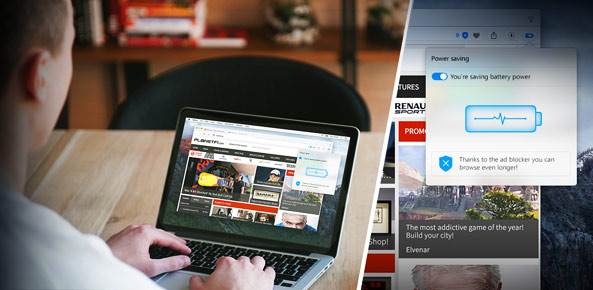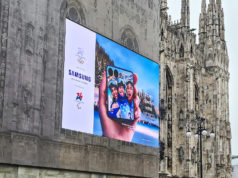The latest developer version of Opera Software’s browser features a power-saving mode the company said can extend a laptop’s battery life by almost 50 percent, compared to previous versions of the browser as well as Google Chrome.
Opera 39 includes a feature that activates when a laptop is unplugged from a power source. When that happens, a battery icon appears next to the browser’s search and address field; clicking that icon turns on the power-saving mode.
While in development, the browser was optimized in several ways to help reduce power consumption when a laptop is unplugged. Targeting browser power consumption was the most obvious way to extend battery life, according to a company blog post.
‘First Major Browser’ With Dedicated Power Saving
“[S]ince people spend almost all their time in their Web browser and relatively speaking little time in other desktop applications, this is something we can do something about,” team leader Paweł Miniewicz wrote today on Opera’s blog. “Some months ago, we asked our browser engine team to start tuning Opera in order to give people people more hours of browsing when on the move.”
Opera made a number of under-the-hood optimizations to help preserve power, including reducing activity in background tabs; adjusting JavaScript schedule timers for waking CPU; automatically pausing unused plug-ins; reducing frame rates; pausing animations of browser themes, and fine-tuning video-playback parameters, Miniewicz said. Those improvements make Opera “the first major browser to include a dedicated power saving mode,” he added.
“Researching battery life is a typical ‘your mileage may vary’ problem,” Miniewicz said, noting that Opera used benchmarks that resembled real-life usage. “However, we wanted to end up with a solution that would improve your daily laptop experience and not be something that works only in clean lab conditions.” Opera’s updated browser will also suggest turning on power-saving mode when a laptop’s remaining battery life reaches 20 percent.
Offers More Battery Life Than Chrome
Opera said it tested the updated browser by loading 11 popular Web sites on a 16 GB, 64-bit Lenovo X250 with a Core i7-5600U processor running Windows 10. The tests used the Selenium WebDriver to automate simulations.
Under normal browsing conditions, Opera said its browser saw a battery life of 1 hour 58 minutes, compared to 1 hour 54 minutes for Google Chrome. When the power-saving mode was turned on, battery life with Opera increased by 49 percent, to 2 hours 56 minutes.
Other new features added with Opera 39 include a built-in VPN, a video pop-out feature and an integrated ad blocker.
According to the analytics site NetMarketShare, Opera has just over 2 percent of the world’s desktop browser market share, compared to nearly 42 percent for Chrome and just over 41 percent for Microsoft’s legacy browser Internet Explorer. (Microsoft replaced Internet Explorer with the Edge browser with last summer’s release of Windows 10.)
Last year, Google also updated its Chrome browser to reduce its memory and power consumption, saying that tests showed a new auto-pause feature for Flash content improved battery life by about 15 percent.
Image Credit: Opera.







